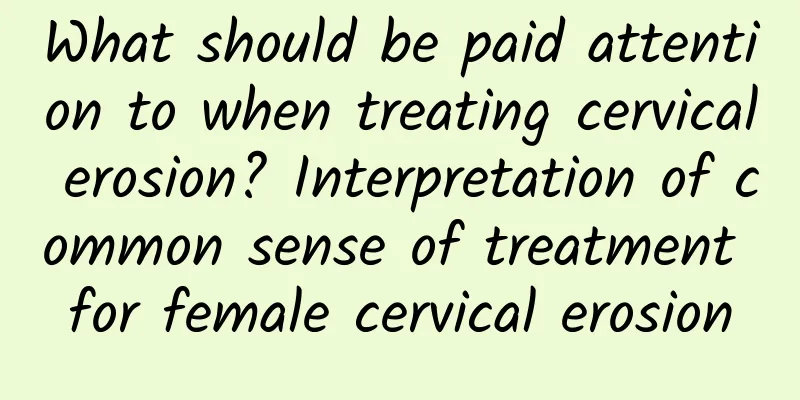What to do if you have Bartholinitis

|
What should I do if I get Bartholinitis in the late pregnancy? Bartholinitis is an uncommon gynecological disease, so what are the symptoms and treatment of Bartholinitis and cysts? This must be a question that everyone is very concerned about, so today our editor will give you a brief introduction to your questions! The Bartholin's glands are located below the labia majora on both sides, and the gland ducts open to the inner side of the labia minora near the hymen. When the vulva is contaminated during sexual intercourse, childbirth or other situations, pathogens can easily invade and cause inflammation. The gland duct openings are often blocked due to swelling or coagulation of exudates, and pus cannot flow out, accumulating to form Bartholin's gland abscesses. This disease often occurs in women of childbearing age, and is mostly a mixed bacterial infection. Gonorrhea is also a pathogen that causes this disease. Antibiotics are mainly used for treatment. After the abscess is formed, it is incised and drained, and the treatment effect is good. Symptoms: 1. Pain and swelling on one side of the vulva, often accompanied by chills, fever and shivering. 2. The lower 1/3 of the labia majora is locally red, painful, and swollen. If an abscess is formed, an egg-sized lump can be seen, with a sense of fluctuation and can rupture on its own. The lymph nodes in the corresponding area are swollen. Diagnosis is based on: 1. One side of the vulva is red, swollen and painful. When an abscess forms, the pain is severe and may be accompanied by systemic symptoms such as fever. 2. There is redness and swelling below the labia majora on one side, with a tender lump. After an abscess is formed, there is a local feeling of fluctuation. Treatment principles: 1. For acute inflammation, rest in bed and receive antibiotic treatment; 2. Local hot compress or sitz bath; 3. After the abscess is formed, incision and drainage are performed, and ostomy is performed. Efficacy evaluation: 1. Cure: Symptoms and signs disappear and the incision heals. 2. Improvement: Symptoms and signs improve. 3. Not cured: There is no change in symptoms and signs. Pro Tip: The disease is mainly caused by bacterial contamination of the vulva, which causes inflammation of the Bartholin's glands. Therefore, the key to preventing this disease is to pay attention to the cleanliness of the vulva and eliminate all factors of infection. Early diagnosis and early treatment are advocated to avoid the pain of incision and drainage after the formation of abscesses. |
<<: Bartholinitis Healthy Diet
>>: Can I have a baby if I have Bartholin's glanditis?
Recommend
Does having uterine fibroids affect pregnancy? What are the symptoms of uterine fibroids?
Will women with uterine fibroids affect pregnancy...
Eat lettuce salad for antioxidants, and add an egg for better nutrient absorption!
In the cold winter, after eating too much greasy ...
What is the main treatment for adnexitis?
Among the many types of adnexitis, uterine adnexi...
The main symptom of pelvic inflammatory disease is often menstrual abnormalities.
Knowing the symptoms of pelvic inflammatory disea...
What are the causes of dysmenorrhea? What are the causes of dysmenorrhea?
Dysmenorrhea is a common problem for many women d...
Endometrial tuberculosis may be sexually transmitted
What is the cause of endometrial tuberculosis? Th...
How much does physical therapy for menopause cost?
The key to treatment is early stage. Some patient...
What are the main hazards of vulvar leukoplakia?
What are the main hazards of vulvar leukoplakia? ...
How to take care of your diet after uterine fibroid surgery What should you pay attention to after uterine fibroid surgery
The main things to note after minimally invasive ...
A brief discussion on bacterial vaginosis
Bacterial vaginosis is a disease caused by bacter...
What are the symptoms of menopausal irregular menstruation? How to regulate menopausal irregular menstruation for women?
Menopause Irregular Menstruation Menopause is a s...
You can use an electric rice cooker or an electronic rice cooker! Cut up 6 kinds of vegetables and throw them in, and DIY belly slimming soup is easily served
The more you eat, the more beautiful and thinner ...
What are the treatments for pelvic inflammatory disease?
With the change of social concepts, the increase ...
What are the complications of threatened abortion?
Pregnant women are very worried about threatened ...
People with stomach problems are prone to metabolic syndrome. Here are the 5 major risk factors! Nutritionist: These tests make visceral fat invisible
People with abdominal problems should pay attenti...









